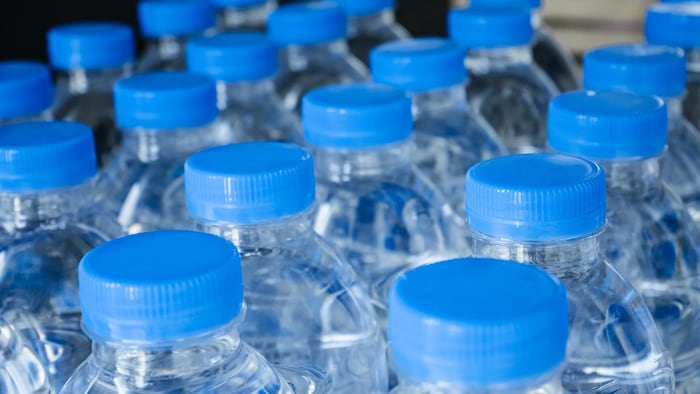Open in full screen mode A new law from the Legault government requires companies that take water in Quebec to be more transparent. Radio-Canada Speech synthesis, based on artificial intelligence, makes it possible to generate spoken text from written text. As of January 1, data on water withdrawals by certain companies in Quebec will be publicly accessible on the website of the Ministry of the Environment and the Fight against Climate Change. This is a long-standing request from various environmental organizations, including the Quebec Environmental Law Center (CQDE) and Eau Rescue. They welcomed the upcoming entry into force of this measure by way of a press release. Transparency is a crucial element in protecting water, which is part of our common heritage. Facilitated access to data is essential for informed citizen participation in public debates, affirmed Me Merlin Voghel, lawyer at the CQDE. This is the < em>Act establishing the Blue Fund and amending other legislative provisionswhich will now require companies that withdraw more than 75,000 liters of water per day to declare the quantities of water they extract. This law, adopted last June, aims to ensure transparency in the activities of companies that take water, particularly those that bottle it, in order to ensure the protection of this natural resource. Loading ELSIDE ON NEWS: Ottawa announces new immigration measures for relatives of Canadians in Gaza The quantities of water absorbed by the companies were until now secret, which is problematic for certain municipalities which need this data to better manage the use of this resource on their territory, as is the case in the regional county municipality (MRC) of Vaudreuil-Soulange.
Ottawa announces new immigration measures for relatives of Canadians in Gaza
The Minister of the Environment of Quebec, Benoit Charette, tabled the bill for the creation of the Blue Fund in April 2023. It was adopted during the summer.
Until now, companies that took more than 75,000 liters of water per day had to communicate a report of these samples to the ministry , but this data was not publicly available due to trade secrecy.
We see a glaring need to immediately increase our knowledge of water withdrawals by businesses in Quebec. We encourage the ministry to use its powers to obtain a fairer picture of the situation, without being satisfied with data from the largest samplers, explains Me Merlin Voghel.
The law also includes the Fee Regulation which provides for an increase in the price paid for water by certain companies.
Bottlers were paying $70 per million liters of water before this law was put in place. They will now have to pay $500 per million liters of water.
This measure also affects certain companies specializing in processing which integrate part of the water they take into their products, as in #x27;cement or concrete industry, for example.
Other companies that previously paid $2.50 per million liters of water will see their fees increase to $35 per million liters. These are factories that use water in their processes, but then release it into a watercourse.
In addition, the law also provides for a reduction in the threshold for being subject to these fees in 2026. This threshold will go from 75,000 liters per day to 50,000. As soon as they exceed this threshold, companies will have to pay the planned fees. /p>
Rébecca Pétrin is the general director of the Eau Secours organization.
We hope that this increase will have the desired effect, that is to say a change in behavior on the part of companies towards a reduction in water consumption. This is particularly what we will monitor with great attention in the coming years, declared the general director of Eau Secours, Rebecca Pétrin.
Despite While they welcome the progress provided for by the Law establishing the Blue Fund and modifying other legislative provisions, the CQDE and Eau Secours still highlight certain shortcomings.
First, they deplore the fact that only the largest water abstractors are required to reveal their sampling data. The two organizations consider that this will harm the creation of a representative portrait of the situation.
Moreover, they consider that the obligation for companies that take water to install meters is not sufficiently supervised.
According to them, no measure can ensure compliance with this standard which has been in place for more than ten years. They plead for reinforced verification.
Rébecca Pétrin, however, welcomes the fact that the regulations included in the law will have to be renewed every five years.
With these new elements, the next five years should allow us to assess the water situation in Quebec. However, it is important to remain attentive to the regulatory review in five years. This is only the beginning, she assured.

